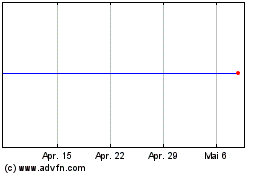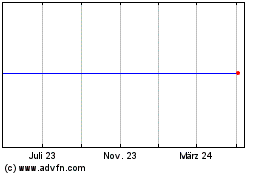FORM 6-K
SECURITIES
AND EXCHANGE COMMISSION
Washington,
D.C. 20549
Report
of Foreign Issuer
Pursuant
to Rule 13a-16 or 15d-16 of
the
Securities Exchange Act of 1934
For the
month of August 2022
Commission
File Number: 001-11960
AstraZeneca PLC
1
Francis Crick Avenue
Cambridge
Biomedical Campus
Cambridge
CB2 0AA
United
Kingdom
Indicate
by check mark whether the registrant files or will file annual
reports under cover of Form 20-F or Form 40-F.
Form
20-F X Form 40-F __
Indicate
by check mark if the registrant is submitting the Form 6-K in paper
as permitted by Regulation S-T Rule 101(b)(1):
Indicate
by check mark if the registrant is submitting the Form 6-K in paper
as permitted by Regulation S-T Rule 101(b)(7): ______
Indicate
by check mark whether the registrant by furnishing the information
contained in this Form is also thereby furnishing the information
to the Commission pursuant to Rule 12g3-2(b) under the Securities
Exchange Act of 1934.
Yes __
No X
If
“Yes” is marked, indicate below the file number
assigned to the Registrant in connection with Rule 12g3-2(b):
82-_____________
AstraZeneca PLC
INDEX
TO EXHIBITS
1.
Tagrisso approved in Japan for early lung cancer
25 August 2022 07:05 BST
Tagrisso approved
in Japan for the adjuvant treatment of
patients with early-stage EGFR-mutated lung cancer
Tagrisso is the only EGFR-targeted medicine approved in Japan for
the
treatment of early-stage lung cancer after surgery
Approval based on results from the ADAURA Phase III
trial
AstraZeneca's Tagrisso (osimertinib) has been approved in Japan for
the adjuvant treatment of patients with epidermal growth factor
receptor-mutated (EGFRm) non-small cell lung cancer (NSCLC) after
surgery. This
approval by the Japanese Ministry of Health, Labour and Welfare was
based on positive results from the global ADAURA Phase III
trial.
While up to 30% of all patients with NSCLC may be diagnosed early
enough to have surgery with curative intent, recurrence is still
common in early-stage disease.1,2 Historically,
over half of patients diagnosed in Stage II, and approximately
three quarters of patients diagnosed in Stage III, have experienced
recurrence within five years of resection.3,4 In
Japan, lung cancer is the leading cause of cancer death and among
patients with NSCLC, more than 35% have tumours with an EGFR
mutation.5,6
Masahiro Tsuboi, MD, PhD, Chief and Director, Department of
Thoracic Surgery & Oncology, National Cancer Center Hospital
East, Japan, and principal investigator in the ADAURA trial, said:
"Osimertinib was first approved in Japan over six years ago and it
has since played a critical role in our treatment of patients with
lung cancer, particularly given the high prevalence of EGFR
mutations among Japanese patients. This approval of osimertinib for
early-stage lung cancer means these patients will now have, for the
first time, a targeted therapy option available earlier in their
treatment journey, after surgery and chemotherapy as
indicated."
Dave Fredrickson, Executive Vice President, Oncology Business Unit,
AstraZeneca, said: "Patients diagnosed with lung cancer in Japan
are more likely than patients anywhere else in the world to be
alive five years after their diagnosis. Yet lung cancer remains the
country's leading cause of cancer death. With this approval
of Tagrisso, early-stage lung cancer patients in Japan now
have a targeted treatment option available after surgery that can
dramatically change the course of their disease, potentially
helping them live cancer-free even longer."
In the ADAURA trial, Tagrisso demonstrated a statistically significant and
clinically meaningful improvement in disease-free survival (DFS) in
the primary analysis population of patients with Stage II and IIIA
EGFRm NSCLC. The trial also showed a statistically significant and
clinically meaningful improvement in DFS in the overall trial
population of patients with Stage IB-IIIA disease, a key secondary
endpoint. These
results were published in The
New England Journal of Medicine in
October 2020.
The ADAURA trial is ongoing to assess overall survival (OS). Final
DFS results will be presented at the upcoming European Society for
Medical Oncology (ESMO) Congress 2022.
Tagrisso is
approved to treat early-stage lung cancer in more than 85
countries, including in the US, EU and China, and
additional global regulatory reviews are ongoing. In Japan, this is
the third approved indication for Tagrisso following previous approvals for 2nd-line
T790M and 1st-line EGFRm NSCLC in March 2016 and August 2018,
respectively.
Notes
Lung cancer
Lung cancer is the leading cause of cancer death among both men and
women, accounting for about one-fifth of all cancer
deaths.7 Lung
cancer is broadly split into NSCLC and small cell lung cancer, with
80-85% classified as NSCLC.8,9 The
majority of all NSCLC patients are diagnosed with advanced disease
while approximately 25-30% present with resectable disease at
diagnosis.1,2
Among patients with resectable tumours (Stage IB-IIIA), the
majority of patients eventually develop recurrence despite complete
tumour resection and adjuvant chemotherapy.3 In
the absence of organised screening efforts, early-stage lung cancer
diagnoses are often only made when the cancer is found on imaging
for an unrelated condition.10,11
Approximately 30-40% of patients in Asia, and 10-15% of NSCLC
patients in the US and Europe, have EGFRm NSCLC.12-14 These
patients are particularly sensitive to treatment with an
EGFR-tyrosine kinase inhibitor (EGFR-TKI) which blocks the
cell-signaling pathways that drive the growth of tumour
cells.15
ADAURA
ADAURA is a randomised, double-blind, placebo-controlled, global
Phase III trial in the adjuvant treatment of 682 patients with
Stage IB, II, IIIA EGFRm NSCLC following complete tumour resection
and, at physicians' and patients' discretion, adjuvant
chemotherapy. Patients were treated with Tagrisso 80mg once-daily oral tablets or placebo for
three years or until disease recurrence.
The trial enrolled in more than 200 centres across more than 20
countries, including the US, in Europe, South America, Asia and the
Middle East. The primary endpoint was DFS in Stage II and IIIA
patients and a key secondary endpoint was DFS in Stage IB, II and
IIIA patients.
Though the primary data readout was originally anticipated in
2022, data
from the trial were reported early following a recommendation
from an Independent Data Monitoring Committee (IDMC) based on its
determination of overwhelming efficacy. The trial is ongoing and
will continue to assess the secondary endpoint of
OS.
Tagrisso
Tagrisso (osimertinib)
is a third-generation, irreversible EGFR-TKI with proven clinical
activity in NSCLC, including against central nervous system
metastases. Tagrisso (40mg and 80mg once-daily oral tablets) has
been used to treat more than 600,000 patients across its
indications worldwide and AstraZeneca continues to
explore Tagrisso as a treatment for patients across multiple
stages of EGFRm NSCLC.
In Phase III trials, Tagrisso is being tested in the neoadjuvant
resectable setting (NeoADAURA), in the Stage IA2-IA3 adjuvant
resectable setting (ADAURA2), in the Stage III locally advanced
unresectable setting (LAURA), and in combination with chemotherapy
(FLAURA2). AstraZeneca is also researching ways to address tumour
mechanisms of resistance through the SAVANNAH and ORCHARD Phase II
trials, and the SAFFRON Phase III trial, which
test Tagrisso given concomitantly with savolitinib, an
oral, potent and highly selective MET TKI, as well as other
potential new medicines.
AstraZeneca in lung cancer
AstraZeneca is working to bring patients with lung cancer closer to
cure through the detection and treatment of early-stage disease,
while also pushing the boundaries of science to improve outcomes in
the resistant and advanced settings. By defining new therapeutic
targets and investigating innovative approaches, the Company aims
to match medicines to the patients who can benefit
most.
The Company's comprehensive portfolio includes leading lung cancer
medicines and the next wave of innovations,
including Tagrisso (osimertinib) and Iressa (gefitinib); Imfinzi (durvalumab) and
tremelimumab; Enhertu (trastuzumab deruxtecan) and datopotamab
deruxtecan in collaboration with Daiichi
Sankyo; Orpathys (savolitinib) in collaboration with
HUTCHMED; as well as a pipeline of potential new medicines and
combinations across diverse mechanisms of
action.
AstraZeneca is a founding member of the Lung Ambition Alliance, a
global coalition working to accelerate innovation and deliver
meaningful improvements for people with lung cancer, including and
beyond treatment.
AstraZeneca in oncology
AstraZeneca is leading a revolution in oncology with the ambition
to provide cures for cancer in every form, following the science to
understand cancer and all its complexities to discover, develop and
deliver life-changing medicines to patients.
The Company's focus is on some of the most challenging cancers. It
is through persistent innovation that AstraZeneca has built one of
the most diverse portfolios and pipelines in the industry, with the
potential to catalyse changes in the practice of medicine and
transform the patient experience.
AstraZeneca has the vision to redefine cancer care and, one day,
eliminate cancer as a cause of death.
AstraZeneca
AstraZeneca (LSE/STO/Nasdaq: AZN) is a global, science-led
biopharmaceutical company that focuses on the discovery,
development, and commercialisation of prescription medicines in
Oncology, Rare Diseases, and BioPharmaceuticals, including
Cardiovascular, Renal & Metabolism, and Respiratory &
Immunology. Based in Cambridge, UK, AstraZeneca operates in over
100 countries and its innovative medicines are used by millions of
patients worldwide. Please visit astrazeneca.com and
follow the Company on Twitter @AstraZeneca.
Contacts
For details on how to contact the Investor Relations Team, please
click here.
For Media contacts, click here.
References
1.
Le Chevalier T.
Adjuvant Chemotherapy for Resectable Non-Small-Cell Lung Cancer:
Where is it Going? Ann
Oncol. 2010;21:196-8.
2.
Cagle
P, et
al. Lung
Cancer Biomarkers: Present Status and Future
Developments. Archives
Pathology Lab Med. 2013;137:1191-1198.
3.
Pignon et
al. Lung
Adjuvant Cisplatin Evaluation: A Pooled Analysis by the LACE
Collaborative Group. J Clin
Oncol. 2008;26:3552-3559.
4. Peters, S. Lungscape: resected
non-small-cell lung cancer outcome by clinical and pathological
parameters. Thorac
Oncol. 2014;9(11):1675-84.
5.
Sekine
I, et
al. A Japanese
lung cancer registry study on demographics and treatment modalities
in medically treated patients. Cancer
Sci. 2020;111(5):1685-1691.
6.
Zhang,
Y.L., et
al. The
prevalence of EGFR mutation in patients with non-small cell lung
cancer: a systematic review and
meta-analysis. Oncotarget.
2016; 7(48): 78985-78993.
7.
World
Health Organisation. International Agency for Research on Cancer.
Lung Fact Sheet. Available at https://gco.iarc.fr/today/data/factsheets/cancers/15-Lung-fact-sheet.pdf. Accessed
August 2022.
8. LUNGevity Foundation.
Types of Lung Cancer. Available at
https://lungevity.org/for-patients-caregivers/lung-cancer-101/types-of-lung-cancer.
Accessed August 2022.
9. Cheema
PK, et al. Perspectives on treatment advances for stage III
locally advanced unresectable non-small-cell lung
cancer. Curr Oncol. 2019;26(1):37-42.
10. Sethi
S, et
al. Incidental Nodule
Management - Should There Be a Formal
Process? Journal of
Thorac Onc.
2016:8;S494-S497.
11. LUNGevity
Foundation. Screening and Early Detection. Available at
https://lungevity.org/for-patients-caregivers/lung-cancer-101/screening-early-detection.
Accessed August 2022.
12. Szumera-Ciećkiewicz
A, et
al. EGFR
Mutation Testing on Cytological and Histological Samples in
Non-Small Cell Lung Cancer: a Polish, Single Institution Study and
Systematic Review of European Incidence. Int J Clin
Exp Pathol.
2013:6;2800-12.
13. Keedy
V.L., et
al. American
Society of Clinical Oncology Provisional Clinical Opinion:
Epidermal Growth Factor Receptor (EGFR) Mutation Testing for
Patients with Advanced Non-Small-Cell Lung Cancer Considering
First-Line EGFR Tyrosine Kinase Inhibitor
Therapy. J Clin
Oncol.
2011:29;2121-27.
14. Ellison
G, et
al. EGFR
Mutation Testing in Lung Cancer: a Review of Available Methods and
Their Use for Analysis of Tumour Tissue and Cytology
Samples. J Clin
Pathol. 2013:66;79-89.
15. Cross
DA, et
al. AZD9291,
an Irreversible EGFR TKI, Overcomes T790M-Mediated Resistance to
EGFR Inhibitors in Lung Cancer. Cancer
Discov.
2014;4(9):1046-1061.
Adrian Kemp
Company Secretary
AstraZeneca PLC
SIGNATURES
Pursuant
to the requirements of the Securities Exchange Act of 1934, the
Registrant has duly caused this report to be signed on its behalf
by the undersigned, thereunto duly authorized.
Date:
25 August 2022
|
|
By: /s/
Adrian Kemp
|
|
|
Name:
Adrian Kemp
|
|
|
Title:
Company Secretary
|
AstraZeneca (NYSE:AZN)
Historical Stock Chart
Von Mär 2024 bis Apr 2024

AstraZeneca (NYSE:AZN)
Historical Stock Chart
Von Apr 2023 bis Apr 2024
